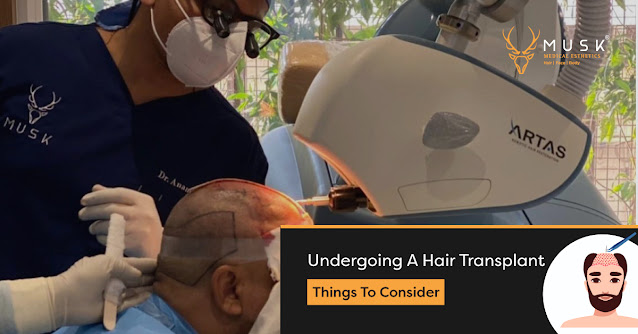Undergoing A Hair Transplant: Things To Consider
If you have ever noticed that you get a scalp, or your hairline is not the same as before, you are not alone! About 60% of men and 45% of women lose hair at some point in their lives. For a few people, it is not something that worries them the most and it is something they can live with happily, but for many; depressing stress leads to loss of self-esteem and confidence. Hair restoration using a hair straightener is a very effective method if you are looking for a permanent solution. However, here are a few things to consider before you decide to make the final call.
1. Are You A Good Candidate?
This mainly depends on the cause of the hair loss and what you expect primarily from maintaining existing hair or restoring hair. For many men who lose hair, bald male pattern AKA Androgenetic Alopecia (genetic hair loss) is a major cause. Hair restoration using a hair transplant gives good results in these cases when done properly. Also, one needs to understand that hair transplants cannot guarantee the survival of existing hairs (they still go into genetic hair loss). In a small patient with a pattern of continuous hair loss, requiring hair transplants, care should be taken to maintain existing hair using non-surgical methods after hair transplantation.
Your choice of procedure also depends on the quality of your hair and is available locally (the areas around and behind the skin where you harvest genetically resistant hair). Also, one needs to match their treatment expectations with the possible side effects of the hair transplant procedure.
2. Have You Researched Into Other Non-Surgical Treatments?
In the early stages of hair loss, significant improvements can be achieved using non-surgical treatments. We have a lot of patients coming to the clinic for hair transplants, but after checking their condition, we recommend non-invasive methods to get started. Medications such as Finasteride, which strengthens hair and binds additional weight loss, and Minoxidil, used on the skin to promote stable hair loss, are the most effective support and PRP treatments for many of our patients.
Platelet-rich plasma (PRP) treatment can be a great way to maintain existing hair, improve its quality and promote new hair growth by opening up the roots of dormant hair.
3. How Good Is Your Research For A Hair Transplant Clinic?
We come across a lot of inefficient cases and shocking news from patients undergoing hair transplant surgery, luring discounts, and very low prices. Cheap for a reason. Many clinics are unregulated, and many have less trained staff than trained surgeons, which can leave patients with unsatisfactory results and permanent damage.
Make sure your hair transplant surgeon consults with you, operates on you, and evaluates your recovery on the next visit. This link is very important in ensuring good treatment outcomes. Also, make sure that you have seen the results before/after the surgery your surgeon performed. You should talk to patients and ask about their experience, recovery, and postoperative clinical response as these factors are important for good research.
4. Understand The Post-Transplant Recovery Process Well
Contrary to popular belief, hair transplants are an unusual, day-to-day procedure with little rest. Most people are free to return to work within two to five days of implantation. You can expect to feel tenderness and swelling of the scalp for 48 hours but it is small and you have nothing to worry about.
It is very important to note that the effect of hair transplants is not immediate. The breakdown period in 4-6 weeks is usually where one can see some (or all) of the new hair falling out. You will begin to notice short hair growth three to four months after surgery and full results within 12-15 months.
If you have decided to take a big step in changing your hair or have questions, why not book a consultation at Musk Clinic and find out more?
Conclusion
At Musk Clinic, it is performed by highly qualified and expert doctors who ensure to help the clients in every step of the process. In this regard, we believe that it is our responsibility to solve the doubts of the clients, talk about the risks and give accurate advice.




Comments
Post a Comment